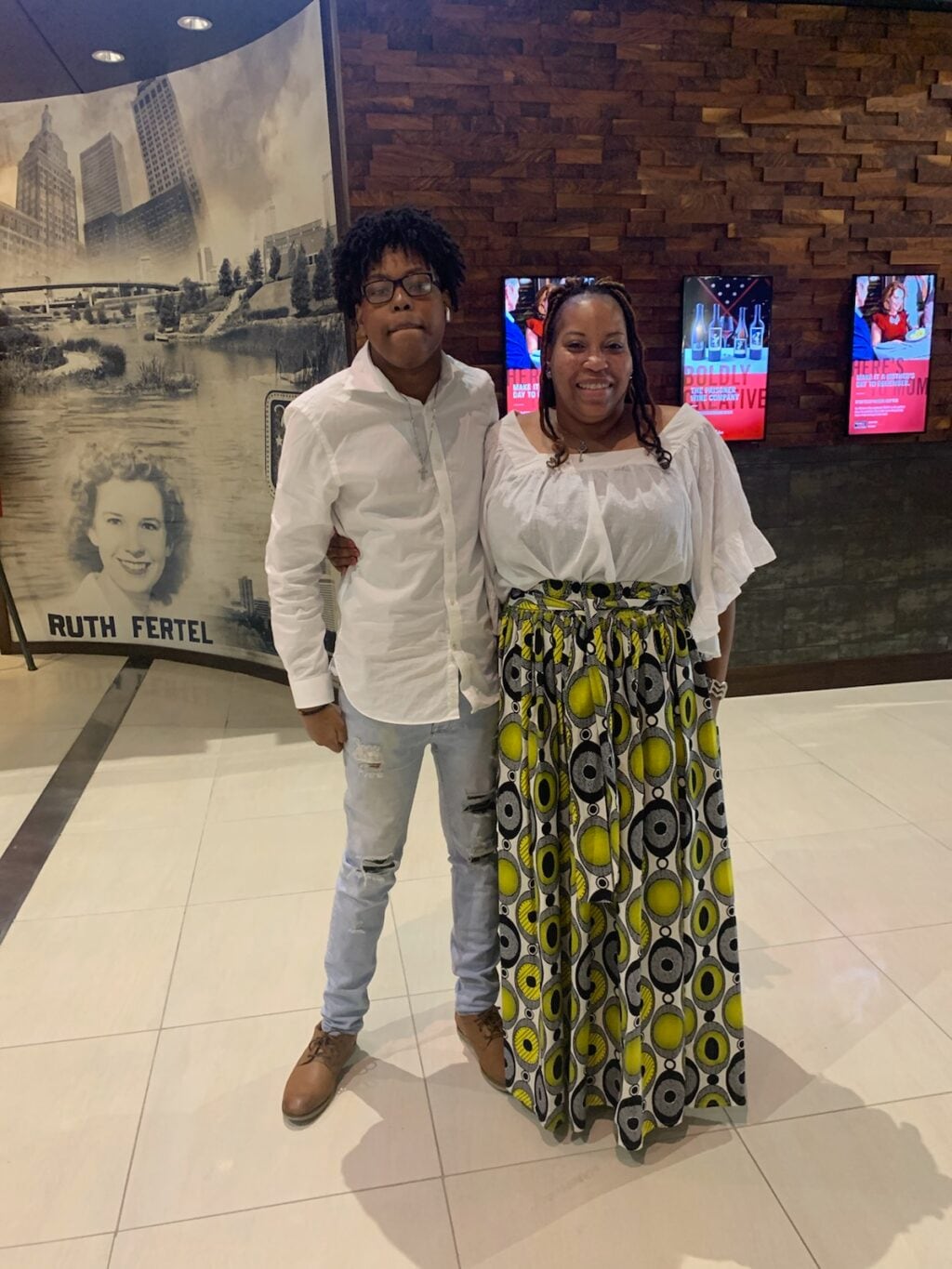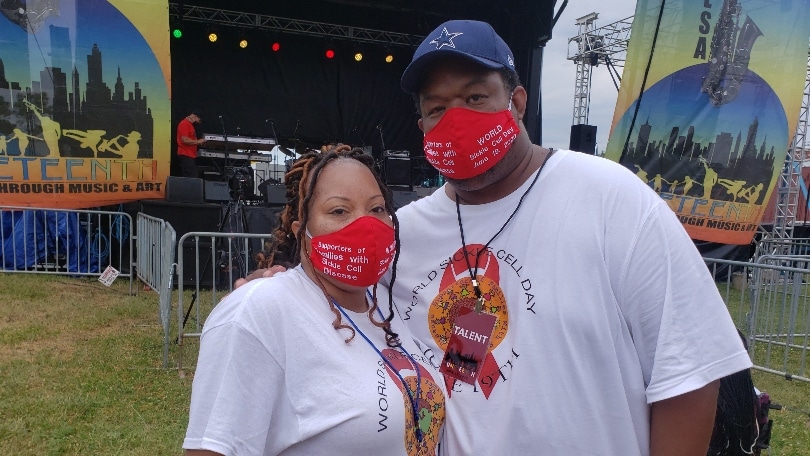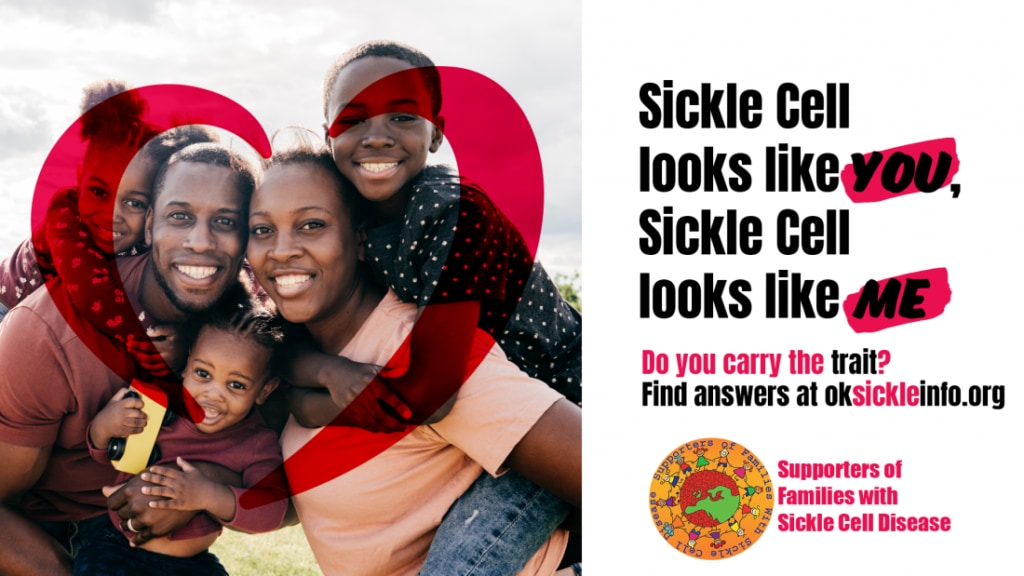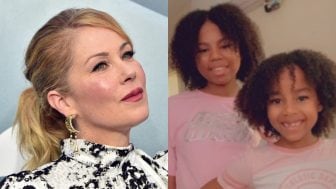Loading the player…
Velvet Brown-Watts, MSW-ADM, CM., and Jeremiah Watts are at the forefront of raising awareness on sickle cell in their Oklahoma community and providing resources to those impacted by the disease.
The couple is not only advocates but knows what it’s like firsthand to be supportive of someone living with the disease. Their son Jeremiah Watts, Jr. was born and diagnosed with sickle cell in 2004 at two months old. The family couldn’t find the necessary resources they needed to help them which is why that same year, they founded the advocacy organization, Supporters of Families with Sickle Cell Disease.

The organization’s mission is to “increase self-efficacy, improve the overall quality of life for patients living with sickle cell and thalassemia, children, adults and their families within the State of Oklahoma through systemic changes in patient care, disability policies, education, family support, economic self-sufficiency, awareness and advocacy.”
Sickle cell disease is a “group of inherited red blood cell disorders that affects hemoglobin, the protein that carries oxygen through the body. Normally, red blood cells are disc-shaped and flexible to move easily through the blood vessels. If you have sickle cell disease, your red blood cells are crescent or “sickle” shaped. These cells do not bend and move easily and can block blood flow to the rest of your body. The blocked blood flow through the body can lead to serious problems, including stroke, eye problems, infections, and episodes of pain, called pain crises. Having sickle cell disease also raises your risk for severe illness from COVID-19.”
According to the CDC, sickle cell disease occurs among about 1 out of every 365 Black or African-American births. SCD occurs about 1 out of every 16,300 Hispanic-American births.

During an interview with theGrio, Velvet Brown-Watts opens up about the challenges that families face.
“Some people would say it’s catastrophic because it creates this whirlwind for families,” Brown-Watts tells theGrio. “I always tell people that sickle cell disease is a journey, and any time you have something that you have to do like if you were going to go climb Mount Everest, you would learn the terrain you would practice. And that’s the way I look at sickle cell disease.”
“You have to learn,” she continues. “You have to educate yourself and a lot of times the families are lacking just access to certain types of care. They’re lacking access to coordinated care or community resources to help with the various things they may need from their families, whether it’s financial or emotional or mental support.”
Since SFWSCD is a comprehensive community based organization, they work with families to coordinate everything outside of medical care. The organization has helped families with financial emergency assistance, medication assistance, transportation referrals for physicians, families with children with Individual Educational Programming.
When COVID-19 hit, they found ways to continue to serve the community while following COVID safety protocols, creating a program called “Stop, Drop, Knock.” Through the program, they were able to drop off food and cleaning supplies to families’ homes without contact.
Health disparities and inequality in healthcare continue to be a topic of discussion in our community, especially now with COVID. Brown-Watts speaks on how that the sickle cell community was already marginalized before COVID and what she would like to see changed in the healthcare system to help the community.
“I personally would like to see the institutional biases and stereotypes and racism that within the medical community surrounding sickle cell eliminated,” says Brown-Watts. “And I think we have to do that by changing policy. We have to do that by educating individuals and becoming more culturally humble and understanding how people feel truly does intersect with the public and their lives. I think we have to be culturally aware and culturally engaged when we’re dealing with people living with different chronic illnesses and one such as sickle cell that that predominantly impacts minority and BIPOC communities.“
Brown-Watts also opens up about the organization’s latest campaign with Oklahoma City Department of Health “Sickle Cell Looks Like You, Sickle Cell Looks Like Me.”

“The whole goal of this campaign was to eliminate, decrease and demystify various ideas, stereotype-isms about sickle cell disease and really begin to shine the light on what the disease is, who all is impacted by sickle cell disease and to let people understand that right here in Oklahoma and in all the other surrounding states and even globally, that anybody can be impacted by sickle cell disease and the other inherited disorders and traits,” says Brown-Watts.
Brown-Watts continues, “And In order to really begin to address the disparity in sickle cell that we needed to really kind of pull out the act that in my opinion of race when we talk about diabetes, we don’t say “Black diabetes.” When we talk about heart disease, we don’t say “white heart disease.” So we need to say sickle cell and make sure that people understand that whether you were of Native American ancestry or you were Mediterranean ancestry, you could be impacted by sickle cell. And that was really important for us. So that’s what we’re doing. We’re shedding light information, education and really working to bring awareness to our state.”
For family members impacted by sickle cell or for those who want to be better advocates Brown-Watts says, “If you are a parent or caregiver, the first thing is when your children are diagnosed, you are considered the primary caregiver. And as they get older, you become the supporting role in a supporting role.”
Brown-Watts stresses that educating yourself is key and adds, “I would encourage families, caregivers, loved ones, friends to truly engage with the person living with sickle cell and find out exactly what they need, how they need it and how you can support them.”
To learn more about the campaign and how you can support, visit http://oksickleinfo.org/
Have you subscribed to theGrio’s podcast “Dear Culture”? Download our newest episodes now!
TheGrio is now on Apple TV, Amazon Fire, and Roku. Download theGrio today!
Loading the player…


